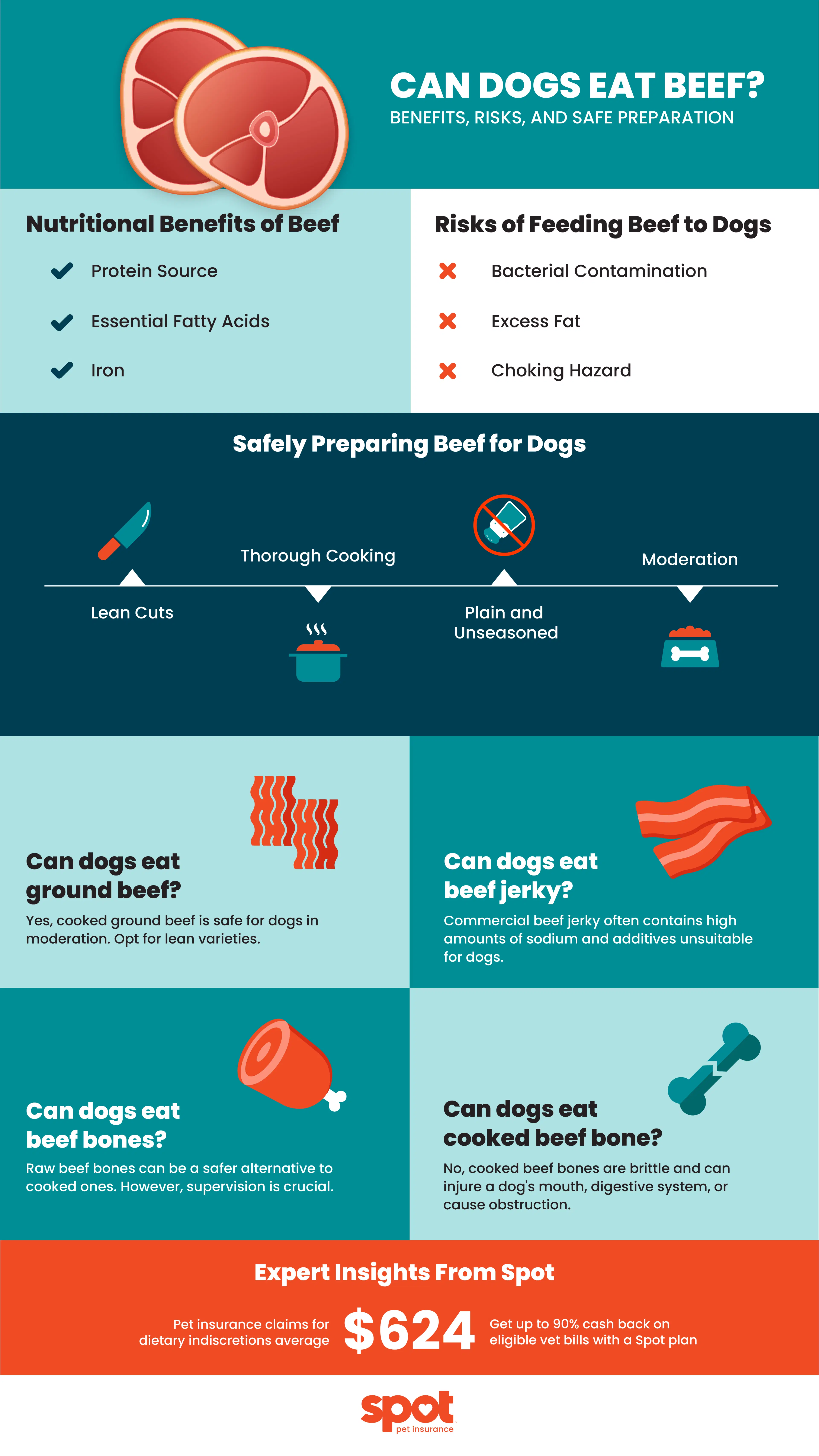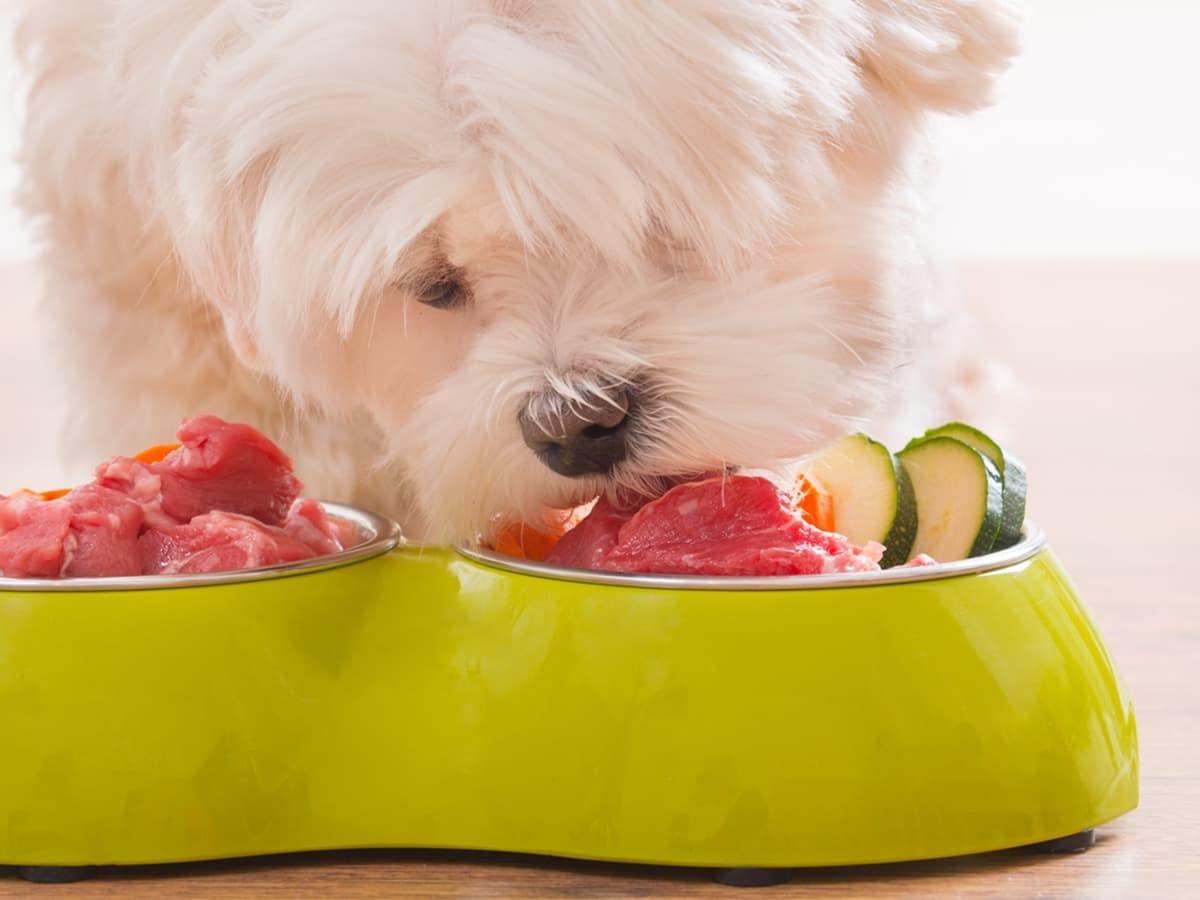While dogs are beloved companions, their dietary needs differ from ours. Understanding the complexities of offering beef to dogs is essential for responsible pet ownership. Let's explore the benefits, potential risks, and safe ways to include beef in your dog's diet.
Is Beef Good for Dogs?
Lean beef is safe for dogs to eat1. Beef provides several nutritional benefits for dogs:
Protein Source: Rich in protein, beef supports muscle development, tissue repair, and overall canine health.
Essential Fatty Acids: Beef contains omega-3 fatty acids, promoting skin and coat health.
Iron: The iron in beef supports oxygen transport in the blood, helping in energy production.
Risks of Feeding Beef to Dogs
Raw meat is likely to contain harmful bacterial like salmonella, listeria, and e.coli 2 While beef offers advantages, potential risks must be considered:
Bacterial Contamination: Raw or undercooked beef can harbor harmful bacteria (Salmonella, E. coli), potentially causing foodborne illness.
Excess Fat: High-fat cuts of beef can lead to weight gain and digestive issues like pancreatitis.
Choking Hazards: Beef bones, especially cooked bones, can splinter and pose a choking or internal injury risk.
Safely Preparing Beef for Dogs
To minimize risks and maximize benefits, follow these preparation guidelines:
Lean Cuts: Choose lean cuts like ground round or sirloin to minimize fat intake.
Thorough Cooking: Always cook beef to an internal temperature of at least 165°F (74°C) to eliminate harmful bacteria.
Plain and Unseasoned: Avoid seasonings, sauces, or added fats, which may upset your dog's stomach.
Moderation: Offer beef as an occasional treat, and should not be a staple in your dog's diet.
FAQ: Beef for Dogs
Can dogs eat ground beef? Yes, cooked ground beef is safe for dogs in moderation. Opt for lean varieties.
Can dogs eat beef jerky? Commercial beef jerky often contains high amounts of sodium and additives unsuitable for dogs. Consult your vet about safer alternatives.
Can dogs eat beef bones? Raw beef bones can be a safer alternative to cooked ones. However, supervision is crucial.
Can dogs eat cooked beef bone? No, cooked beef bones are brittle and can injure a dog's mouth, digestive system, or cause obstruction.
Can I feed my dog cooked beef? Yes, completely cooked, unseasoned beef is safe in moderation.

Expert Insights From Spot
While it can be fun to share our favorite foods with our pets, pet parents should keep in mind that sometimes, eating human food can upset a pet's stomach. Spot's internal data shows that on average, pet insurance claims for dietary indiscretions (pets eating too much of what they shouldn't) cost $642*. This high cost highlights why pet parents should keep an eye on what their pets eat, and do their research before sharing their favorite snacks with their dogs. Being mindful of what treats we share with our pets can help keep them healthy while helping pet parents avoid unnecessary vet bills.
Key Takeaways
Beef can be a nutritious occasional treat for dogs when cooked thoroughly, offered in moderation, and from lean cuts. Always prioritize safe preparation practices and consult your veterinarian about incorporating beef into your dog's diet. Ultimately, balanced canine nutrition hinges on a combination of high-quality dog food and veterinarian-approved additions.

I’m Charlie: canine enthusiast with a knack for figuring out why my dog, Dallas, is more infatuated with tennis balls than me. My lifelong passion for dogs has created a dedication to help other pet parents better understands their furry family members!
*Jan 2019 to April 2024 administrator claims data.
1.) Elliott, B, Can my dog eat this? A list of human foods dogs can and can’t eat. Healthline, 2023, February 1, https://www.healthline.com/nutrition/human-foods-for-dogs
2.)Can dogs eat raw meat?: Purina. Purina US., n.d, https://www.purina.com/articles/dog/feeding/can-dogs-eat/raw-meat
The information presented in this article is for educational and informational purposes only and does not constitute or substitute for the advice of your veterinarian.











